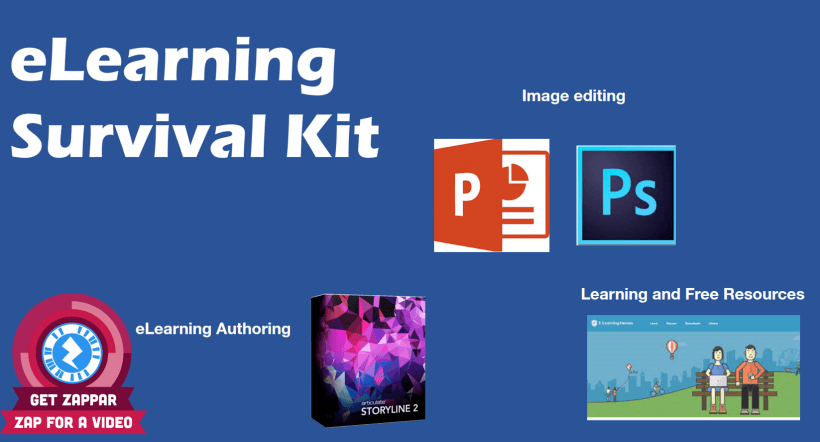How To Create Augmented Reality With Zappar Adds
If you look around the tech world, most folks are talking about Virtual Reality (VR) and its many applications. However, it seems VR is a bit “futuristic” for workplace learning where eLearning multimedia is still being vaguely implemented. Augmented Reality (AR) seems a better candidate to integration in workplace learning since it has many possibilities to enhance the learning experience for printed materials and onboarding experiences. Unlike virtual reality, augmented reality does not have to be closely monitored and it does not require special equipment. Let's take a look at augmented reality and how it can be easily taken from concept to execution with applications made by Zappar.
Augmented Reality Defined
Augmented Reality is technology that allows us to create the illusion of multimedia interactions on physical objects. For example; a hologram can be an example of AR. Here's a Mashable on augmented reality. As you can imagine, augmented reality has been profusely used by the marketing industry due to its engaging nature and traceability. This means that movie posters can have AR icons which users can interact with at a bus stop to see the trailer on their mobile devices. In terms of integrating AR into eLearning materials or written handouts Zappar has two products that meet the challenge: ZapCode Creator and Zappar Studio. We concentrate on the ZapCode Creator because it's the easiest of the two, but feel free to check out the Zappar site to learn about Studio.
ZapCode Creator
ZapCode Creator is a web based application from Zappar that makes it really easy to create AR content embedded icons we can use in any of our participant guides or written materials. The codes work similar to known QR codes but, the main difference is how they are read. Zappar uses a free downloadable app named Zappar App that's designed to read the printed or onscreen codes or “ZapCodes” and displayed them as interactive elements on your mobile device. Watch the video below to see how a wedding invite was infused with a ZapCode.
Create Your Own ZapCode
Creating your own ZapCode will cost you nothing but time. Zappar gives a 30 day trial for its apps which is pretty awesome. Alright, if you are ready to have some fun, here's how to get “zapping”:
- Step1: Get the free trial.
This one is easy, go here and sign up for the ZapCode Creator 30-day free trial. - Step2: Watch my tutorial.
On this YouTube video I walk you through the process of creating an AR infused image with the ProEditor version of the ZapCode Creator.
- Step3: Create your own ZapCode.
Once you have created your own ZapCode, share it here on the comments so I can check it out. - Step4: Download the Zappar app.
The Zappar App is available for iOS and Android devices. Is the only way your ZapCode would work. - Step5: Open the Zappar app.
Once you have the app, open it and get “zappin” all your ZapCodes.

